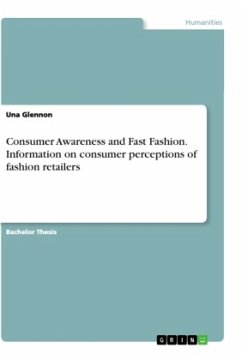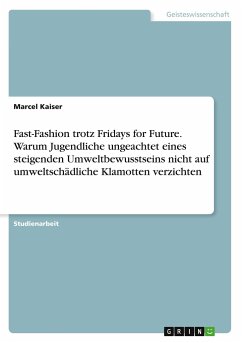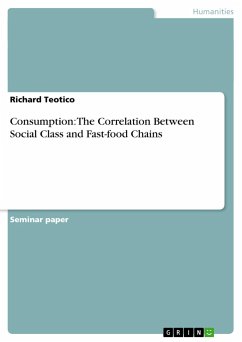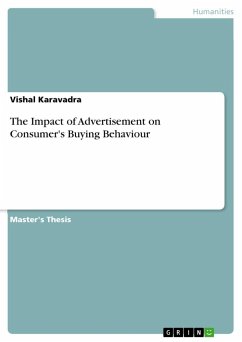Bachelor Thesis from the year 2020 in the subject Sociology - Consumption and Advertising, Dublin Institute of Technology, course: International Business, language: English, abstract: This research project explores the consumer awareness of fast fashion amongst Irish consumers aged between eighteen and twentyfive. The aim of this research is to explore the level of awareness consumers have regarding fast fashion. Additionally, it intends to explore what the term "Fast fashion" means to young Irish consumers. Furthermore, this research aims to provide information on consumer perceptions of fashion retailers. Moreover, the research also intends to highlight whether those perceptions play a role in the buyer decision process.The key findings suggest that consumers fail to associate the ethical and environmental concerns that are synonymous with the fast fashion industry. Moreover, the research also exposed a failure that there is a disconnect between the term fast fashion and the manufacturing methods. Fast fashion and sweatshop labour are not mutually exclusive terms yet fast fashion as a term does not seem to carry the burden of its manufacturing origin. It was found that consumers have intentions of shopping more ethically and sustainably. However, there appears to be several misconceptions in what is currently considered ethical fashion among consumers which would affect the consumers ability to make an informed purchase decision. Cognitive dissonance being the act of consumers distancing themselves from purchase decisions that contradict their morals to avoid the feeling of discomfort was evident in this study. This research also found that the practice of greenwashing was present in fast fashion retailers advertising which does not portray the true environmental and social impacts of a product to the consumer.
Hinweis: Dieser Artikel kann nur an eine deutsche Lieferadresse ausgeliefert werden.
Hinweis: Dieser Artikel kann nur an eine deutsche Lieferadresse ausgeliefert werden.








